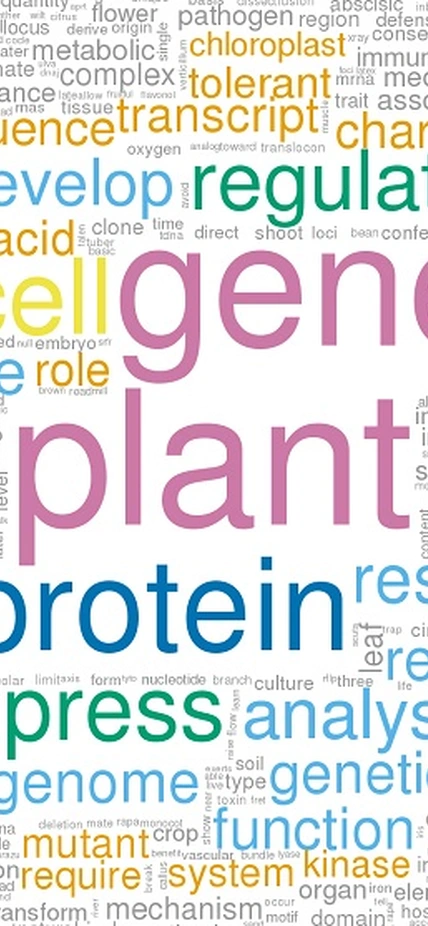Washington, DC— More than 1,000 scientists from nonprofit, corporate, academic, and private institutions say public doubts about genetically modified food crops are hindering the next Green Revolution. In a letter published in the journal Science, six researchers from three institutions explain their recent petition in support of science-based criteria in guiding the safe and effective employment of genetic modification (GM) technology.
The petition, which is the first organized by individual scientists in support of GM technology, yielded more than 1,400 signatures from plant science experts supporting the American Society of Plant Biologists’ (ASPB) position statement on genetically modified (GM) crops, which states that they are “an effective tool for advancing food security and reducing the negative environmental impacts of agriculture.” The ASPB is the world’s largest organization of plant biologists.
Although there is broad support in the scientific community for genetically modified crops, the petition organizers feel that too much confusion about the issue is hindering effective deployment of these technologies.
“To meet our current and future food supply demands, without destroying our planet, we need every efficacious tool available,” they write. The letter’s authors are Carnegie’s Jose Dinneny; Noah Fahlgren, Rebecca Bart, and Daniel Chitwood of the Donald Danforth Plant Science Center in St. Louis, MO; and Luis Herrera Estrella and Rubén Rellán Álvarez of the National Laboratory of Genomics for Biodiversity in Mexico.
The signatories of the petition represent a knowledgeable consortium of scientists, who have published more than 17,600 scientific papers on subjects including plant breeding, the molecular and genetic mechanisms underlying plant growth and development, and plant responses to environmental stresses. The petitioners’ goal is to demonstrate to the public that there is consensus within their scientific community about the safety and efficacy of using genetic modification technology in agriculture.
“Our petition gives voice to the individual scientist,” Chitwood explains.
Carnegie President Matthew Scott, one of the petitioners, says: “GM crops, deployed appropriately in light of scientific knowledge and societal and environmental imperatives, can improve food and health substantially without detriment to the environment. In fact there is considerable potential for preserving the environment through use of GMOs to reduce excessive use of pesticides and fertilizers.”
The document adds voices to the already existing position statements in support of genetically modified organisms from other scientific organizations including the American Medical Association, the U.S. National Academy of Sciences, the American Association for the Advancement of Science, and the World Health Organization.
“We hope that the consensus among plant scientists presented here is heard by policymakers, the business community, and, more importantly, the general public and initiates a new conversation on how best to implement GM tools to improve crops for sustainable agriculture. We invite advocates of the responsible use of such tools to read the ASPB position statement, sign our petition, and make your voice heard to encourage the use of the best-available scientific information in setting GMO policy and evaluating individual agricultural products,” says Dinneny.
The ASPB position statement and the petition can be found at http://cas.nonprofitsoapbox.com/aspbsupportstatement.
________________________________________________________________________________
About The Donald Danforth Plant Science Center
Founded in 1998, the Donald Danforth Plant Science Center is a not-for-profit research institute with a mission to improve the human condition through plant science. Research, education and outreach aim to have impact at the nexus of food security and the environment, and position the St. Louis region as a world center for plant science. The Center’s work is funded through competitive grants from many sources, including the National Institutes of Health, U.S. Department of Energy, National Science Foundation, and the Bill & Melinda Gates Foundation.
About the American Society of Plant Biologists
ASPB is a professional scientific society, headquartered in Rockville, Maryland, devoted to the advancement of the plant sciences worldwide. With a membership of some 4500 plant scientists from throughout the United States and more than 50 other nations, the Society publishes two of the most widely cited plant science journals: The Plant Cell and Plant Physiology. For more information about ASPB, please visit http://www.aspb.org/. Also follow ASPB on Facebook at facebook.com/myASPB and on Twitter @ASPB.
